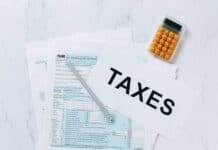When you own a home, property taxes are considered an unavoidable expense. Most of the time, people find it challenging to pay their property tax even when there is no economic crisis or a major health issue at play. However, since COVID-19 entered the scene, many homeowners are wondering how this pandemic might affect their property taxes.
What Makes Your Property Tax Bill Smaller And How Can COVID-19 Affect It?
Your property taxes are mostly based on your home’s value. However, it is vital to note that local and state officials might also have a say in establishing your final property tax rate. Hence, let’s find out how this pandemic might affect your property tax bill based on the aforementioned factors.
Your Home’s Value During The Coronavirus Pandemic
Generally, the value of your home is established by an assessor working under your local government. When your home assessment goes up, that means your property taxes increase as well, and vice versa. That is why what most property owners do after they receive a larger property tax bill is to appeal their assessment, especially if they feel that the assessment was unfairly inflated.
We can’t deny that COVID-19 has disrupted our country’s housing market, created an uncertain outlook for several businesses, and resulted in higher unemployment rates. All of those factors develop a temporary recession. Based on the past, when there is a recession, home values most likely drop. This leads to lower property taxes.
You need to know whether your home value was reassessed or not according to your local government. That is why homeowners should keep current on their home’s value. That way, you can opt to appeal your home assessment if needed.
Property taxes in some areas might not consider the home value declines caused by the pandemic. If you feel that this is the case, you might want to appeal. To do so, you can check on your property tax assessment. It most likely has an explanation about how you can appeal. Also, it will help if you learn about COVID property tax planning. That way, you can manage to pay your property taxes easily.
Property Tax Relief During COVID-19
As mentioned earlier, your property taxes depend on a combination of your home’s value (assessed by the assessor) and the needs or requirements of your local government. This is also with the state, which lays down all the guidelines your local government must follow.
For example, the state of California has a law called Proposition 13. It was established in 1978 and capped property taxes at 1%. Before that, the average property tax in California was 2.67%.
Most states and localities have already established property tax relief in place. To help you out, you can check online to see if you have any tax relief available for you in your hometown. For example, in 2020, the state of Indiana ordered that all property taxes should only remain due on May 11. However, counties must not charge penalties on payments that are made after May 11 for only 60 days.
What About The Federal Government? Do They Offer Property Tax Relief?
The federal government provides relief to homeowners. However, at first, it was not directly in the form of property taxes. The federal government offers the Coronavirus Aid, Relief, and Economic Security (CARES) Act, which provides citizens with a different kind of relief.
Last March 27, 2020, the CARES Act was signed into law by former President Trump. It helps homeowners who cannot pay their mortgage due to the impact caused by the pandemic on their finances. This is through mortgage forbearances or foreclosure moratoriums.
A mortgage foreclosure permits you to pause or reduce your mortgage payments for a limited period. It does not eliminate your need to repay the reduced or miss payments. On the other hand, a foreclosure moratorium stops or suspends your lender from foreclosing on your property. This usually occurs when you did not make the required payments on your mortgage.
In April 2020, the Federal Reserve initiated a Municipal Liquidity Facility (MLF) using the CARES Act funds. This will give up to $500 billion in short- and mid-term funding to states and municipalities.
Those municipalities who greatly depend on local taxes have experienced revenues plummet due to COVID-19. To make up for that gap, the government offers MLF funding. This will permit the counties, cities, and states to provide property tax relief for the homeowners. Not only that, but they can also use the MLF to fund schools, administration, and other services.
The MLF will be administered by the Federal Reserve Bank of New York. It will purchase up to $500 billion in short-term notes straight from eligible entities. Furthermore, cities in our country with 250,000 residents or more, as well as counties with a population of at least 500,000 residents, are eligible for MLF.
In addition to this, states can also delegate up to four that are possibly qualified for funding. These entities might include smaller municipalities. Not only that, but it might also include institutions such as state universities.
Back then, when the program was first announced, cities with 1 million residents or more and counties with 2 million residents or more were qualified. However, local officials from all over the US petitioned to change the requirements. This is because they believe it excluded too many areas in the country.
For example, the 26th largest county by population in the US, which is Suffolk County on Long Island, was not originally qualified. Even though it was a large county with 1.5 million residents and was hard-hit by the pandemic, it still didn’t make the cut. This led them to request lowering the threshold for MLF eligibility.
To Sum It Up
As a homeowner, you should understand what might happen to property taxes nationally and in your specific area, especially when the country returns to business as usual. Moreover, it is vital to know that although getting lower property taxes is beneficial for you in the short term, you should also note that these taxes are the basis for community initiatives. This means lower property taxes might be advantageous for an individual, but not possibly the entire community.












